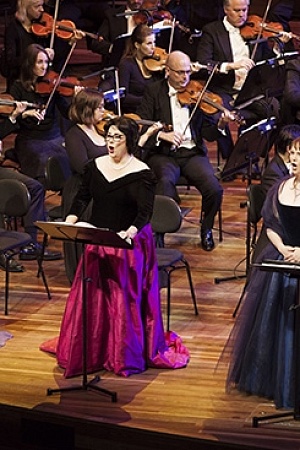Don Quichotte (Opera Australia) ★★★★1/2
Desdemona’s plangent, soaring phrase at the end of the ‘Willow Song’ in Verdi’s penultimate opera, Otello, has been described as the last despairing cry of the bel canto. After many years of relentless tragedies, Verdi’s final opera, Falstaff, would be a bubbling and effervescent comedy – only his second in his illustrious career. Yet it is autumnal work as well. The great actress Eleanor Duse, mistress of Verdi’s librettist Arrigo Boito, observed: com’ è triste la tua commedia (‘how sad your comedy is’) with its melancholy tinge and profound sense of the end of an era. Puccini and the verismo composers were looming large and they would take Italian opera in a new direction which would end with Puccini’s unfinished Turandot in 1924.
A similar claim might possibly be made for the final scene in Jules Massenet’s comédie héroïque, Don Quichotte. Sancho Panza’s brief Act V arioso: ‘Ô mon maître, ô mon grand!’ (‘O my master, o my great!’), is a moving farewell to the age of chivalry, but might also be seen as a farewell to French Romantic opera. Rather than the soaring tones of a soprano or tenor, it has the rich, dark warmth of the bass voice. There is a parallel with Verdi’s scene in Otello in that the introduction to the scene is sounded in the low strings, which creates a gloomy and foreboding atmosphere.
Continue reading for only $10 per month. Subscribe and gain full access to Australian Book Review. Already a subscriber? Sign in. If you need assistance, feel free to contact us.










Leave a comment
If you are an ABR subscriber, you will need to sign in to post a comment.
If you have forgotten your sign in details, or if you receive an error message when trying to submit your comment, please email your comment (and the name of the article to which it relates) to ABR Comments. We will review your comment and, subject to approval, we will post it under your name.
Please note that all comments must be approved by ABR and comply with our Terms & Conditions.